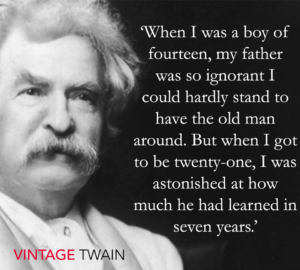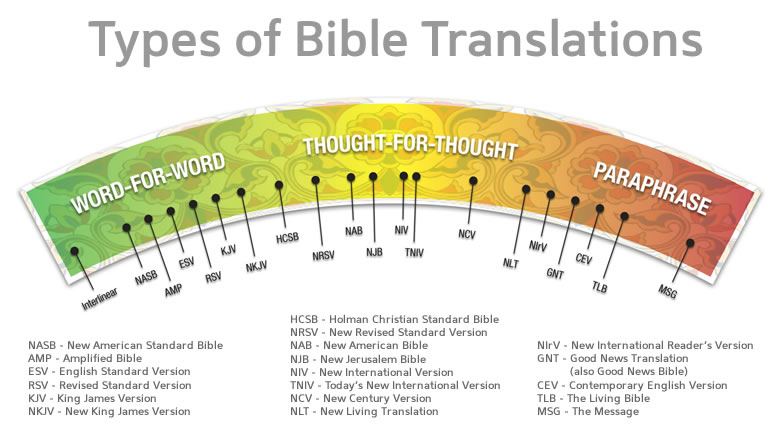
Share on facebook
Facebook
Share on google
Google+
Share on twitter
Twitter
Share on linkedin
LinkedIn
SERMON RECAP – October 6th, 2019
Abundant life – praise & prayer
October 10th @ 12:36pm
Yay, two timely (ish) sermon recaps in a row…of course as I write this I’m suddenly nervous I’ll get interrupted and won’t get to post this today…ah well, why worry, write on!
Sunday contained the third out of five sermons about ‘Abundant Life Together,’ our sermon series that is overlapping with life group kickoff. As always, if you haven’t been able to attend or watch the sermons yet you can check them out here, which I’d highly recommend. But as a quick refresher if you were there or have watched, here are the big points specifically from this past week’s sermon:
about ‘Abundant Life Together,’ our sermon series that is overlapping with life group kickoff. As always, if you haven’t been able to attend or watch the sermons yet you can check them out here, which I’d highly recommend. But as a quick refresher if you were there or have watched, here are the big points specifically from this past week’s sermon:
- How we pray depends on the basis of our relationship with God, & will be different if we view God as father rather than a boss or landlord.
- What or who you hallow (worship) in your secret time reveals whom or what you truly hallow (worship).
- Praise & adoration of God is central and foundation for a vibrant and deep prayer life as well as a deep relationship with God.
Caught up? Cool. Let’s elaborate on a point.
Father or Landlord – How can you tell?
I’d made the case that the basis on how you approach God impacts how & why you pray, which will then impact how you worship and whom or what you hallow. I specifically made the illustration of living in a house. If you live in a rental, you pay your landlord monthly, and your performance determines if you continue to live there. No rent, no house. If you were to pay your rent and still get evicted, you’d either be bitter towards your landlord or self-pitying (i.e. I supposed I deserve that, I’m just that person which always has this happen to them, etc…). Most likely you’d be a combination of both. In contrast, a child lives in a house because they’re  accepted, and their performance (if they contribute to the rent or not) doesn’t impact it. The hope is they have a safe, stable place to learn how to live and grow. Obviously this isn’t a perfect metaphor, but the principle is there. The question is, how do you know whether you have a landlord or Father relationship with God?
accepted, and their performance (if they contribute to the rent or not) doesn’t impact it. The hope is they have a safe, stable place to learn how to live and grow. Obviously this isn’t a perfect metaphor, but the principle is there. The question is, how do you know whether you have a landlord or Father relationship with God?
This may seem like an obvious question, but it’s really not to those in the midst of it. Sometimes these feelings are couched in theology, not to mention feelings are hard to dissuade. The best way I know how to discern for yourself is to honestly and objectively ask yourself this question: if God were to say no to a prayer you absolutely and completely wanted Him to say yes to, how would you react?
Teens – Physical & Spiritual
I remember when I was 15 and my parents would say no to my many requests. I believed myself to be mature and seasoned, that the world was just waiting for me to happen to it, and that it would submit to my plans on a whim. While I didn’t think of it that exact way at the time, looking back it’s not far from the truth. What’s also not far from the truth is how bitter I was towards my parents when they would say no for (from my perspective) no reasonable  reason. I knew what I wanted, I knew what was best, I knew…and I was bitter and angry when they said no. I was furious and disheartened. I felt like I was being held back, like if ONLY I had what they were denying me I could be happy/good/responsible, etc…I could prove myself in this world, I could…yeah…
reason. I knew what I wanted, I knew what was best, I knew…and I was bitter and angry when they said no. I was furious and disheartened. I felt like I was being held back, like if ONLY I had what they were denying me I could be happy/good/responsible, etc…I could prove myself in this world, I could…yeah…
Now, as a 30-year-old military veteran, being married, several years experience in real ministry, and my fifth child due in a few days, I look back on my 15-year-old self and realize that it wasn’t that I knew nothing, as many are fond of saying about their younger selves, but that my sphere of knowledge and experience was extremely limited. It’s obvious that with what the last 15 years since that age have contained that I would know a thing or two more than I did. That knowledge and experience have shaped me in a way that when my own children ask for things similar to what I asked for, I find myself also saying no. And they’re bitter and sad. Not because they no nothing, but because they don’t know yet.
Many of you reading this understand both of these scenarios. But I know from personal experience that while we understand this idea from a human perspective, many people treat God the same way as teens do their parents. Or at very least, place the same expectations of “Why WOULDN’T you give me or provide in the ways I asked?” I don’t believe many do this consciously but still do all the same. A teen will say, “It’s not fair. I deserve this. You’re being selfish. You don’t really care about me.” I’ve heard, in the first person, the same accusations leveled at God from well-meaning, confused Christians.
Needed Growth

This Mark Twain quote to the left is one of my favorites. It speaks to the change in perspective we hope all teens, and from a ministerial perspective teenage Christians, undergo. Call it maturity, call it transformation, call it knowledge, growth, a paradigm shift, but whatever it is it is an important change in human life as well as spiritual life. I now understand things about having a home, raising children, life in general which my fifteen-year-old self didn’t and couldn’t. I viewed my parents, as bosses, as business partners, as in I do what you ask therefore I get to do what I ask. We know it doesn’t work that way. I now understand my parents were trying to teach me accountability, thoughtfulness, responsibility, perseverance, patience, and many other life skills that include not getting what you want all the time.
It should go without asking but I’ll ask it anyway: compared to God, how wise and knowledgable, how smart and powerful, how gracious and complete was the best human not named Jesus? Completely and utterly negligible is the answer that comes to mind. We can’t create anything from nothing, and we don’t know what the next five minutes hold let alone the next five millennia. God can and does, again something I would hope doesn’t need to be said. Having said that, why is the spiritual teenager’s perspective more common than we want to admit? it comes down to, as I mentioned above, how you view your relationship.
The Good Father
If you view God only as a powerful entity who either gives you what you ask for, gives you what they think you deserve, as someone who gives you only what they want when they want it, or as someone who is obligated to give you what you ask when you meet the ‘qualifications’, no wonder we’re bitter. That god would be unpredictable, vindictive, petty, and shallow. That god is more in line with the pagan Roman and Greek gods who could be bought off by sacrifice, and who still may do or not do what they say. Humans were playthings, amusements, and lesser beings that sometimes depended on the gods, but also could be just fine without.

The God of the Bible, however, as seen in Jesus, isn’t just GOD, but FATHER. What would the ideal father look like? Parenting books all say that to give in to your children’s every wish and desire is a bad idea, as is never giving your child anything. Parenting is a constant journey of trying to give your children what they NEED, regardless of if they know it or not. Good parents want to also lavish gifts and good things on their children when able and appropriate, but yet still never to their detriment. Children who know and believe their parents love them, care for them, and want the best for them, while they also may not be happy about every decision their parents make, also are able to accept them easier because they understand and believe it was made for their good.
I’m glad now that my parents didn’t say yes to my 15-year-old self – I’d be an absolute disaster today. I’m also glad that God didn’t answer some of my own prayers as I’d asked Him too – man, they’d have turned out horrible. I’m not God, I can’t know certain things, but I know God, FATHER God does, and so I pray and trust that His answer is best. I don’t always like it, but I can trust it. I can trust the time frame – whether it be 10 minutes from now, 10 hours, 10 days, or 10 years. I can trust because I know God as the best Father, and I trust that I’m His beloved child in Christ.
Everyone’s Question
It’s a simple question, but a complex and life-challenging answer. It’s a question that some people struggle a lifetime with and never get anywhere close to answering, but for others answer from a young age and never question. it’s a question that in a moment can being someone from being spiritually a teenager into young adulthood, or perpetuate the spiritual teenage purgatory I’ve talked about.
And if so, are you willing to believe that all that means?
Father in heaven, hallowed be your name. May your perfect love and care shine through the darkness and despair of this world, and may everyone who seeks you come to know you, trust you, love you, and believe you to be the Good, Greatest Father that you are. May we, because of Jesus, know you care for us, hear us, and walk with us as a Father should, and that you always treat us as the best of Fathers do. May we seek to believe you, trust you, and live like you. Amen.
I’m praying for you. Grace to you.
Share on facebook
Facebook
Share on google
Google+
Share on twitter
Twitter
Share on linkedin
LinkedIn
SERMON RECAP – September 29th, 2019
Abundant life – sharing the word
October 1st @ 12:37 PM
Well, shame on me and my apologies for letting nearly a whole month…ugh…between sermon recaps, especially with the Abundant Life series & life groups starting! I’ll blame…I’ll blame…well I’ll blame me, but we don’t need to go pointing pixels…
If you haven’t been able to attend Circle the last two weeks or you haven’t been tuning in, you may want to check out the sermons from the last two weeks here to catch up. We’ve talked about quite a bit. But Here’s a VERY quick recap before the…recap. Feel free to skip ahead three paragraphs if you’ve been there or watching.
LAST TWO WEEKS IN A NUTSHELL
 Jesus said that He has come so that His followers may have life, and have it abundantly. Sounds great, but what does that mean? Well it all has to do with what the word life means and how the Bible speaks of those who have eternal life. ‘Having eternal life’ is by far the preferred term for talking about those who are living a quality of life that is different than those around them. It is this quality, a quality that comes from living like, though, in, and by God, that makes the Christian life distinct.
Jesus said that He has come so that His followers may have life, and have it abundantly. Sounds great, but what does that mean? Well it all has to do with what the word life means and how the Bible speaks of those who have eternal life. ‘Having eternal life’ is by far the preferred term for talking about those who are living a quality of life that is different than those around them. It is this quality, a quality that comes from living like, though, in, and by God, that makes the Christian life distinct.
Biblical authors in both the Old and New Testaments are fond of talking about the present age (of sin, fallen humanity, evil, etc) and the age to come, in which God will sort out, redeem, and make new His fallen world into how it was always meant to be. The definition of life with how the Biblical writers talk about it, combined with the consistent principles of how God views and charges us to act in His creation tells us that eternal life isn’t JUST life with God after death, but a quality of life that believers in Christ have and can live in and out NOW, in the present world. This quality of life is like Jesus, who in essence was bringing God’s future world into the present, bringing heaven to earth, bringing redemption into decay, holiness into sinfulness. Hence is the call of every Christian, hence what the life is that Christ came so we may have.
Whew…again I’ll remind you that that’s the premise of the last two sermons – I’d highly recommend you watch them so we’re all tracking on the same line here. On September 22nd, we looked at fellowship, or rather true koinonia, the commitment, community, and intimacy that believers are to share with one another, and that by having true koinonia with each other, or at least striving for it, we were practicing and bringing an aspect of eternal life to earth in that moment. We also talked about how practicing true koinonia as a discipline, that indeed was a method how God could and does transform us into the image of Christ. Which, brings us to Sunday’s sermon…finally…
that that’s the premise of the last two sermons – I’d highly recommend you watch them so we’re all tracking on the same line here. On September 22nd, we looked at fellowship, or rather true koinonia, the commitment, community, and intimacy that believers are to share with one another, and that by having true koinonia with each other, or at least striving for it, we were practicing and bringing an aspect of eternal life to earth in that moment. We also talked about how practicing true koinonia as a discipline, that indeed was a method how God could and does transform us into the image of Christ. Which, brings us to Sunday’s sermon…finally…
QUICK CORRECTION
The point of the recap isn’t to rehash every point of the sermon, but to remind us of the premise and either fix, expound, or add to a point or  two. First, a correction:
two. First, a correction:
The Overture of 1812 is 14 minutes and 53 seconds long, not the 18 I think I said. Toccata & Fugue in D Minor, on the other hand, is actually roughly 9 minutes and 40 seconds, a minute longer than what I said. Neither of these affect the rest of the sermon, but I’m not above fixing anything that came out wrong!
relating to relationships
I admitted I struggled with the presentation of this sermon because I didn’t want it to come out as, “We should read and study our Bibles more!” While that’s true, and will always be true, there’s not a Christian I’ve met who not only didn’t already know that, but already had a sense of guilt about the time (or lack thereof) spent studying and reading. We know this. We also know it’s surprisingly hard to do, which my hunch is because we can’t relate to Scripture the way we can to other things we devote time to. Do we look at it like a manual, a textbook, a book to simply help us in life? If we do, we’re missing out.
 I say that honestly doubting anyone consciously looks at their Bibles that way. But I do know many look at their Bibles with very little feeling at all, which goes along with that point. How do we view Scripture, and how can we change that perception?
I say that honestly doubting anyone consciously looks at their Bibles that way. But I do know many look at their Bibles with very little feeling at all, which goes along with that point. How do we view Scripture, and how can we change that perception?
Without rehashing the theological points (a few of which I’ve already done, sorry), I’d like to talk about three tools I personally use to keep my relationship with Scripture strong, and to keep any doldrums out of that relationship. Like my relationship to my wife, relationships take work, time, and intentionality, and your relationship to Scripture and God is no different.
tools for bringing the spark back
New Translation
The saying goes that similarity breeds contempt. While while I’d hope our Bible reading doesn’t go that route (!!!) I would agree that sometimes similarity brings unhealthy familiarity and (I daresay) boredom. Let me explain what I mean. John 3:16 says “For God so loved the world that He gave is only begotten son, that whosoever believes in Him will not perish, but have eternal life” (Thomas Conglomerated Version). Many Christians have known that verse for years and decades. Here is also John 3:16: “God wen get so plenny love an aloha fo da peopo inside da world, dat he wen send me, his one an ony Boy, so dat everybody dat trus me no get cut off from God, but get da real kine life dat stay to da max foeva.” That’s from the Hawai`i Pidgin New Testament (Da Jesus Book). Which got your attention? My whole point is this: sometimes we read or do something do familiar that we don’t pay attention as much anymore. It actually happens quite often in relationships, and the solution is to mix up your schedule a bit and intentionally do something different. Why not do that with Scripture? 
There are a plethora of valid Bible translations out there, ranging from word-for-word to paraphrase. Grab one, know what it is you’re reading, and try your devotional and personal reading with that one. Try to see how this one translates familiar verses differently, see how it approaches familiar passages. Sometimes reading a new translation can be a whole new experience.
New Prayer Life
A friend of mine had been a devoted Christian longer than I had been alive, and an elder for nearly half of my life. We were talking one day and I asked him what his study & reading schedule was. I’d call it ideal – up early, an hour of study and reading, exercise and off to the day. I commented I was jealous of him being able to keep to that routine, and that it showed. Two weeks later I taught a class and mentioned the importance of praying BEFORE you read Scripture as well as praying after. He came up to me and said he’d never considered doing that, that prayer had always been something in RESPONSE to reading, never preparation. I gave him a few months and asked him about it. He said he felt his reading was much richer, that he’d have thoughts connect and rabbit trail that he’d never had before, and he felt that his reading impacted him in different ways.
 Now, prayer is not a magic formula, as in do it and expect these results. But I believe preparatory prayer, especially in Bible reading, is an important thing that many people are missing out on. When you pray BEFORE you read, you’re asking God, the writer of the Bible, to help you learn, help you grow, remember, and be taught. You’re inviting God into your reading of a living and active libray. You’re asking the Transformer to use this act as a method in which to transform you into more like Jesus. Praying after you read is vital as well, but perhaps start to intently pray before you read for your reading. Pray not just to learn, but to be impacted, to be impressed upon, for it to grow you in the very act of reading. Pray that God use even this act not just to increase your knowledge of Him, but to increase your relationship with Him. Just as a letter from a family member means so much more when you have an actual relationship with them outside of the letter, perhaps our relationship with God & His Word aren’t that much different.
Now, prayer is not a magic formula, as in do it and expect these results. But I believe preparatory prayer, especially in Bible reading, is an important thing that many people are missing out on. When you pray BEFORE you read, you’re asking God, the writer of the Bible, to help you learn, help you grow, remember, and be taught. You’re inviting God into your reading of a living and active libray. You’re asking the Transformer to use this act as a method in which to transform you into more like Jesus. Praying after you read is vital as well, but perhaps start to intently pray before you read for your reading. Pray not just to learn, but to be impacted, to be impressed upon, for it to grow you in the very act of reading. Pray that God use even this act not just to increase your knowledge of Him, but to increase your relationship with Him. Just as a letter from a family member means so much more when you have an actual relationship with them outside of the letter, perhaps our relationship with God & His Word aren’t that much different.
Lectio Divina
Le-huzza-wuzza now? Have you ever been reading Scripture and something tends to leap off the page or stick with you for that day? Or had a passage that you just can’t get out of your mind?
Lectio Divina is Latin, meaning divine reading, and is an intentional practice of reading and interacting with Scripture as a living document. The ‘modern’ method dates back to the 300s and was a primarily monastic practice around the year 1000, but actually mirrors how the Jews would read and interact with the Pentateuch from well before that. It’s not magical, not denomination or creed based, and isn’t anything other than a specific, intentional way of interacting with Scripture.
There are four main parts to this practice: lectio (reading),  meditatio (meditation), oratio (prayer), and contemplatio (contemplation). These are there only to provide structure and again, aren’t magical checklists to listen to God’s voice. But it does take intention and discipline.
meditatio (meditation), oratio (prayer), and contemplatio (contemplation). These are there only to provide structure and again, aren’t magical checklists to listen to God’s voice. But it does take intention and discipline.
I’d recommend this article which goes deeper into the full practice of Lectio Divina, but I’ll talk about one way I’ve adapted it in my busy stage of life & schedule.
I will pray and approach Scripture asking God to impact my head or heart, asking Him to speak into my life. I will often read until something leaps out at me – a word, phrase, metaphor, verse, image, or if what I’m reading stirs another thought, scenario, person, or emotion. I’ll stop my reading, and dwell on that reaction or impact. God gave us imaginations, why not use it for His glory? I’ll ask the Holy Spirit to guide my thinking and reaction, and ask how does this apply or should apply to me today.
I’ll then pray about what I’ve just thought, starting with praise for God for who He is and what He’s done. I’ll often pray by simply telling God about the experience, who or what came to mind, how that impacted me, and what I should do about it. After my prayer, I’ll let the moment linger as long as I can, in a sense, just being in the presence of God and His word. I’ll then intentionally come back to these thoughts and prayers through the day, which I find rich and rewarding.
This isn’t to put meaning into Scripture or to make it say things it doesn’t, but to allow what I read to penetrate my mind, heart, and understanding. Left to it’s own devices, this practice can easily lead you unBiblical places. Thoughts and experiences should always be filtered through what Scripture says. But, we shouldn’t be afraid to relate, experience, and connect with God and Scripture in different ways that we may be accustomed to.
Wrap-up
God gave us an incredible gift by giving us the Scriptures. I believe it’s our responsibility to use every tool and method available to us for drawing nearer to God, including through Scripture. I know I’ve been guilty of perpetuating a shallow relationship with God due to a shallow relationship with the Bible, something which still takes discipline and intentionality to overcome. I pray that this sermon series, our life group, and maybe these humbly offered tools can help even one person draw even a little closer to our Creator. I’m praying for you. Grace to you.

SERMON RECAP – September 1st, 2019
A Tale of two thieves
September 3rd @ 12:06pm
Welcome to September! Everyone seems to agree that time goes by fast and that we were just heading into summer yesterday, yet here we are heading into fall. School starts back up this week for the Corvallis district, and OSU kicks off on the 22nd, which means our campus ministry is making the final preps from the summer lull into constant ministry. What a great time to be a part of Circle!
I do pray that Sunday mornings are good times in your week, and I was excited to preach on the topic I did this last Sunday. If you’d like to still watch the sermon and service you can do that here, but otherwise we can still talk about what the two thieves on the crosses with Jesus can teach us about why we do things, how we see ourselves, and why we are Christians.
 The subject in question comes from Luke 23, particularly verses 32-43, in which Luke records that two other criminals were crucified with Christ. The first joined the rulers, crowds, and guards in mocking Jesus and challenged him to get them all out of there. The second thief rebuked the first, admitted his guilt, and asked Jesus to remember him when He came into His kingdom, to which Jesus said that that day the thief would be with Him in paradise.
The subject in question comes from Luke 23, particularly verses 32-43, in which Luke records that two other criminals were crucified with Christ. The first joined the rulers, crowds, and guards in mocking Jesus and challenged him to get them all out of there. The second thief rebuked the first, admitted his guilt, and asked Jesus to remember him when He came into His kingdom, to which Jesus said that that day the thief would be with Him in paradise.
I said yesterday that this week and next week’s sermon is really one long extended sermon. This week’s focus asked us more about our response to Jesus, challenging us how we indeed response to Jesus, if we challenge Him like the first thief did, and if we could accept the grace that God shows us as He did the second thief. I’d like to use this time to elaborate a little on the grace shown the second thief, as well as some issues some might have with that very thing.
Grace: What is it?
 I’ll not be going into the full exegetical breakdown of what grace is or isn’t here, but I will offer a very important aspect of understanding Jesus’ response to the second thief. Grace is not a THING that we can get more of or lose, that we run out of and must ask of God for more. Both the Hebrew and Greek words tell us that the word means the FAVOR of God, which is then manifested in God’s actions towards His creation, perhaps signified in the words that God is gracious as said in Exodus 34:6-7. His graciousness is evident, culminating in the greatest act of graciousness in history in the coming of Jesus Christ for the world’s salvation. So the question is, in what part of any of that do you see any human response? SPOILER ALERT: It’s not there. Grace is first and foremost about who God is and what He’s already done for those He loves. So you see, you can’t get more grace or lose God’s grace: you have it, based upon the character of God and what He’s already done for you. It doesn’t mean that you’re necessarily benefiting from it, but it means it’s already there for you, as it was for the two thieves on the crosses by Jesus.
I’ll not be going into the full exegetical breakdown of what grace is or isn’t here, but I will offer a very important aspect of understanding Jesus’ response to the second thief. Grace is not a THING that we can get more of or lose, that we run out of and must ask of God for more. Both the Hebrew and Greek words tell us that the word means the FAVOR of God, which is then manifested in God’s actions towards His creation, perhaps signified in the words that God is gracious as said in Exodus 34:6-7. His graciousness is evident, culminating in the greatest act of graciousness in history in the coming of Jesus Christ for the world’s salvation. So the question is, in what part of any of that do you see any human response? SPOILER ALERT: It’s not there. Grace is first and foremost about who God is and what He’s already done for those He loves. So you see, you can’t get more grace or lose God’s grace: you have it, based upon the character of God and what He’s already done for you. It doesn’t mean that you’re necessarily benefiting from it, but it means it’s already there for you, as it was for the two thieves on the crosses by Jesus.
When I say benefiting from it, I mean that if you haven’t responded to the fact that God has acted and is gracious towards you, those facts alone aren’t actually impacting your life. It’s not a reality that you’ve taken a hold of and manifested in your life. Let’s use a simple illustration:

If I call you and say I’ve got a $100 bill for you, but you need to meet me to receive it, I’ve acted in a gracious way towards you. You didn’t do anything to deserve it, but nonetheless I want to give it to you, indeed I’ve already given it to you in a way, you simply need to come take it. If you say you don’t want it, or if you don’t come receive it, the fact that I’ve graced it to you, acted graciously towards you, and the act itself doesn’t change, but it’s not doing anything for you. You’re not a benefactor of my grace, though it’s there and it’s yours. Even if you sneer at me and mock me saying, “If you were REALLY so great you’d give me $200!”, it doesn’t change that I have been gracious in the way I have. If you indeed come and receive it, you didn’t do anything to earn it at all. Coming to get it wasn’t earning it because it was simply what was necessary to receive it. And now having received it, it changes how you act and live. You could buy groceries you couldn’t before, or get someone else something nice, all due to my grace.
Two things: first, don’t call and ask me for $100 because all my hundreds go to my kids and wife first, and anything I have on me left over will have at least less zeros on it…
Secondly, we can easily understand that idea of grace when it comes to money, but so many people struggle with it when it comes to God. I wish I knew why. It’s the same concept, logic, and in a sense process, just different details. We respond to what God has already done with faith, which is made up not only of what we believe but what we then do. If we have faith the $100 is real we’ll act with it. Same with God’s grace, favor, and salvation. This is what the second thief did – even hanging on a cross next to Jesus, he acted in faith, and responded to God’s grace through the Messiah before him. He didn’t have a chance to act differently, but Jesus recognizes the man’s confession and honors it.
A KEY DETAIL
Continuing with the money metaphor, there’s a key detail which colors God’s grace to us, more than the fact that we don’t deserve it. Using the same scenario imagine you’ve stolen money from me, let’s say $10. Changes the scenario, yes? Why might I not only want to grace you with more money, but in the process forgive your wrongdoing? Perhaps because you mean enough to me that I want to break down any barriers between us, perhaps because I know you don’t want to act that way, and perhaps because I know that by acting gracious towards you it will not only change your life in that moment, but help you to act that way all the time.
Hopefully, you can see I’m not really in the metaphor anymore. God acts graciously towards us even when we’ve, in a sense, stolen ourselves away from Him by putting the barrier of sin between us and setting ourselves on a course for death. He does this because we mean that much to Him that we might have the opportunity to respond to what He’s done, that He, having created it, knows what’s best for human nature that that sinning is not supposed to be our normal, and that by gracing us with that we could never hope to accomplish on our own we might aspire to what we can be and do in Him. Jesus is the sacrifice that we all ought to be, and that should change us.
I’ll be preaching about how to make that knowledge and response turn into true transformation next week, and will write accordingly.
WHAT I DIDN’T TALK ABOUT
There are a myriad of other issues that traditionally come up with we talk of the second thief on the cross, and quite frankly those aren’t ones I’m going to deal with today. Always feel free to email me or contact me with questions anytime. Today I wrote about something I see in people all the time – a misunderstanding of what grace is, and that yes you can respond to and take it, because grace isn’t really about you.
 What grace really is answers some of the most sincere and painful thoughts I’ve heard from people: “But I’ve done __________, could I be saved too?!?! If God really knew me He’d never save me. I’m TOO bad to have God’s grace.” Yes you can, He’s does know you and has already acted to save you, and no you’re not because grace isn’t about you, and God’s inviting you to respond and act on His grace. Just like the second thief.
What grace really is answers some of the most sincere and painful thoughts I’ve heard from people: “But I’ve done __________, could I be saved too?!?! If God really knew me He’d never save me. I’m TOO bad to have God’s grace.” Yes you can, He’s does know you and has already acted to save you, and no you’re not because grace isn’t about you, and God’s inviting you to respond and act on His grace. Just like the second thief.
In the end, we can all use another $100. And if that’s the case, how much more God’s favor upon us?
Grace to you.
A BLOG?!?!?!
I actually remember when blogs started to hit the mainstream internet. I also remember thinking that blog, short for weblog, sounded like a funny word. I still think that. Of course I also now read several kinds of blogs on a regular basis as well as maintained one during my ministry in South Dakota. Well, I now am happy to present to you Circle’s first regular ministry blog – YAAAAAAAAY! But what will be in this blog?

Well, that’s a good question. Obviously I’d hope it’s interesting, educational, and generally something worth your time, but of course that’ll be up to you. Here’s what I know I’ll regularly post…
- SERMON AND CLASS RECAPS
As a minister part of my job is to spend a lot of time reading, studying, and preparing for not only sermons and classes but to learn Scripture and as much about it as I can. This means, humbly, that a huge portion of what I actually do study and learn through the week, even for a particular class and sermon, doesn’t make it into said class or sermon. Every preacher who devotes the time and energy needed has content they need to cut. So, in addition to quick summaries of what the class or sermon was on, some of the extra content will end up here. I won’t include EVEEEEEERYTHING, but if there’s a particular point that there wasn’t time for, a great illustration, a resource I want to point you to, it’ll be here.
A good friend of mine once both cautioned and encouraged me by telling me this truth: “As preachers, we say a lot of words. Some of them will be wrong.” Yes, I am indeed human, and sometimes I’ll muddle a statistic, forget a verse, or indeed sometimes completely massacre the point I was trying to make. I’ll attempt to explain myself and fix it here, and try to give you what I was trying to say and probably a better version of it anyway. Hopefully that doesn’t happen TOO much, but it will!
- ADDITIONAL RESOURCES
If I have a book, watched a video, listened to a podcast, attended a lecture, or found something else that I’d just LOVE to share with you, I’ll most likely do that here, usually with a word or two about it and why I think it’s worth sharing. - BOOK REVIEWS
I try to read a lot, and not just because I should and need to for ministry. Charles Spurgeon once observed, “Paul had a few books, which were left perhaps wrapped up in the cloak, and Timothy was to be careful to bring them. Even an apostle must read.” When I do, I like to share. I’ll share books I recommend and don’t, as well as why or why not. I’ll tell you their basic content, arguments – i.e. a good book review. Or I might just like enough to say you should really read this book like today, and leave it at that… - CHURCH LIFE
What I mean by this is that Circle has many events and therefore many people that make it go, not just the paid staff. Here I’ll compliment ministries and people, talk to you about stories and the experience of events, and generally give you some insights into ministry and the life of the congregation. - RANDOM THOUGHTS AND RAMBLINGS
Ah, perhaps my favorite category. This is fairly self-explanatory, yes? Sometimes you’ll get whatever is bouncing around in my head, be warned 🙂
I do pray that even this blog can point to Christ and give God the glory of living for Him everyday, but we can have some fun with it too. I pray this blog will be beneficial not only to your day but to in some ways help point you to Jesus. And if nothing else, I pray that whether you attend Circle or not this can help you get to know me a little bit, a man striving to serve God who happens to be in ministry. We’ll look forward to the journey. Happy reading!
Grace to you.


